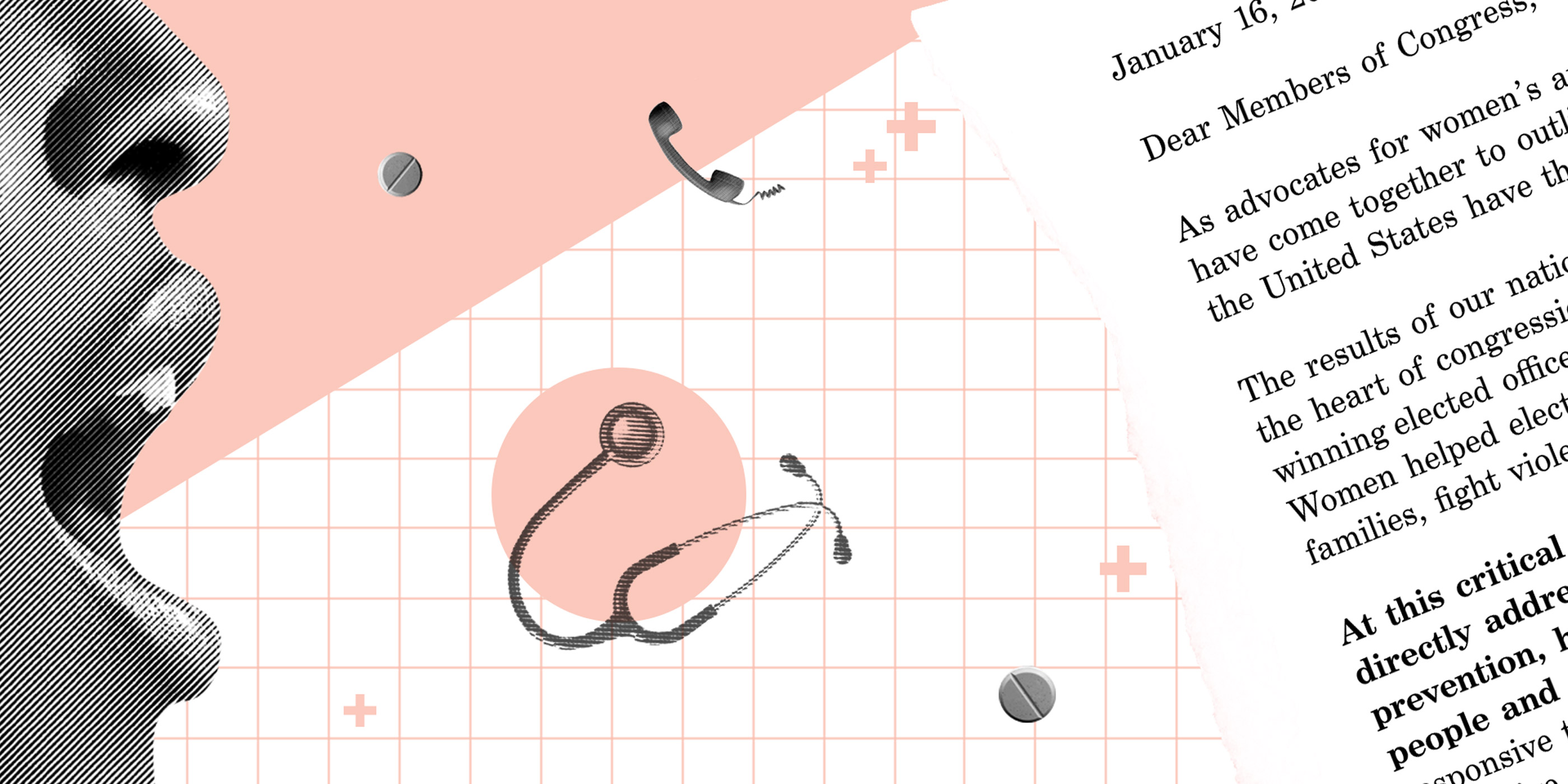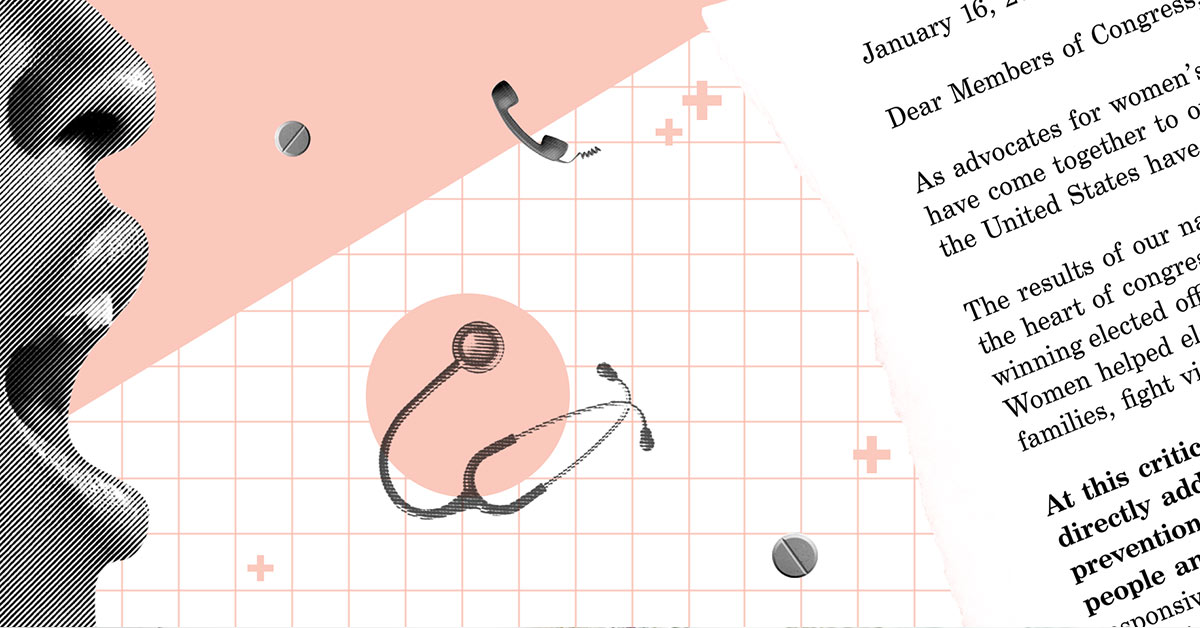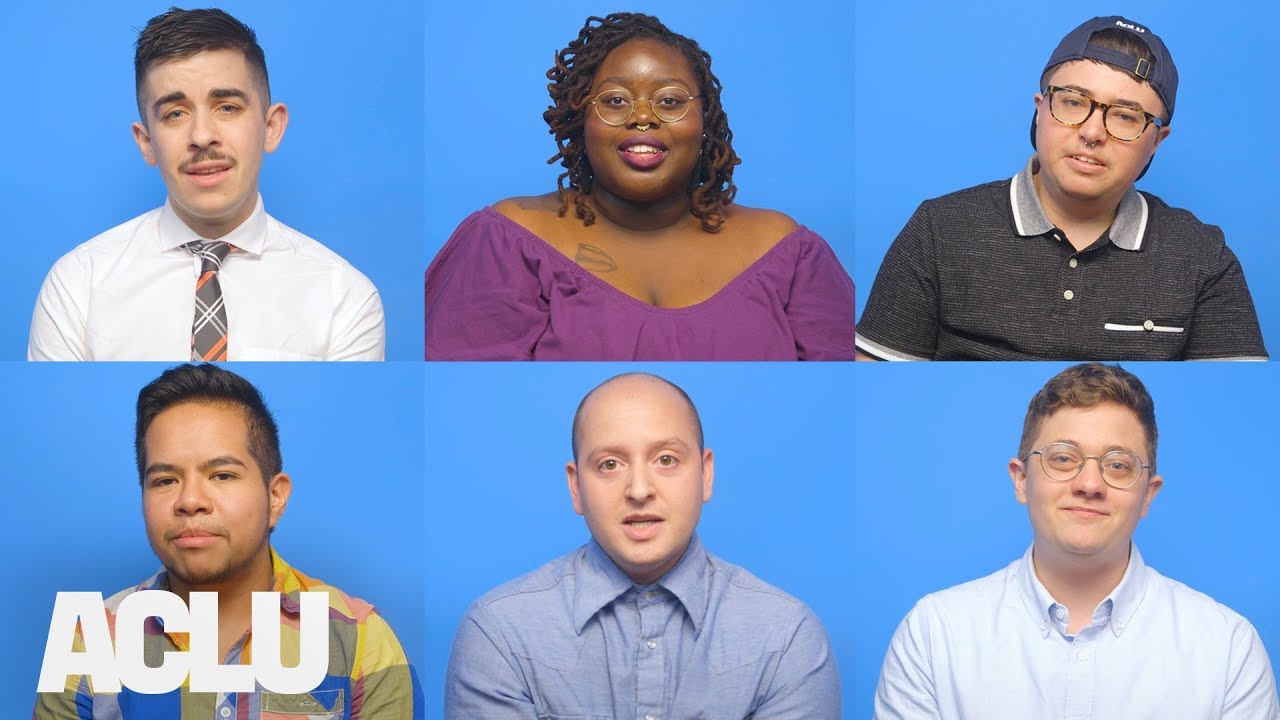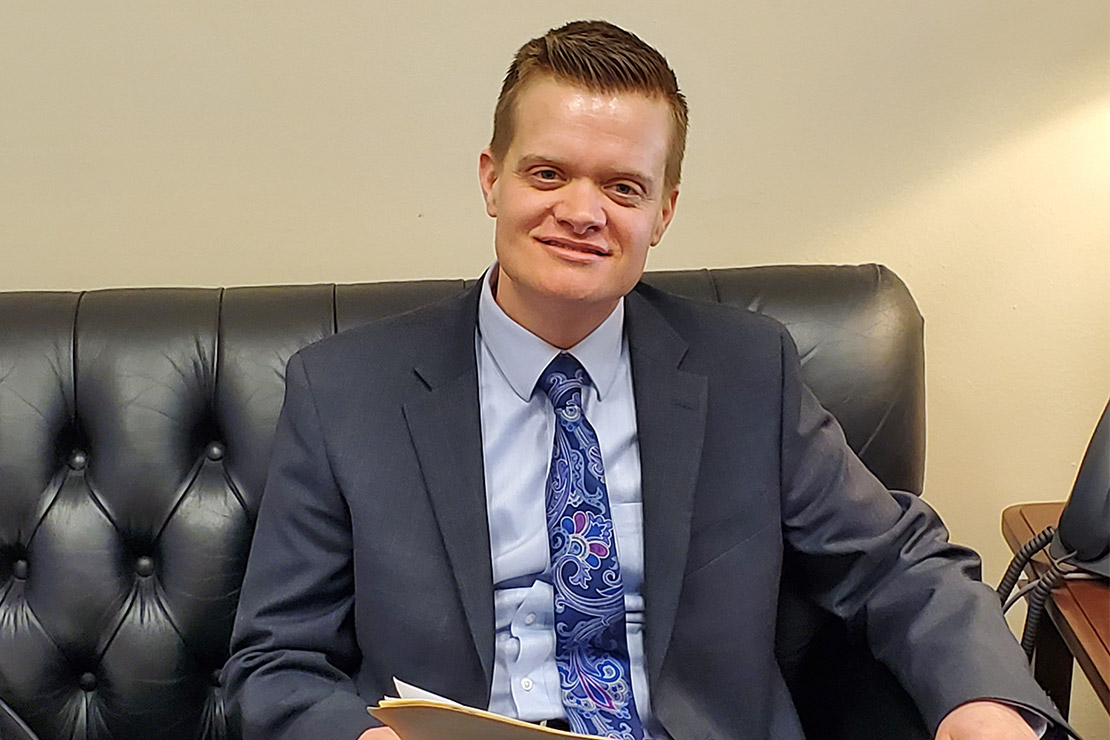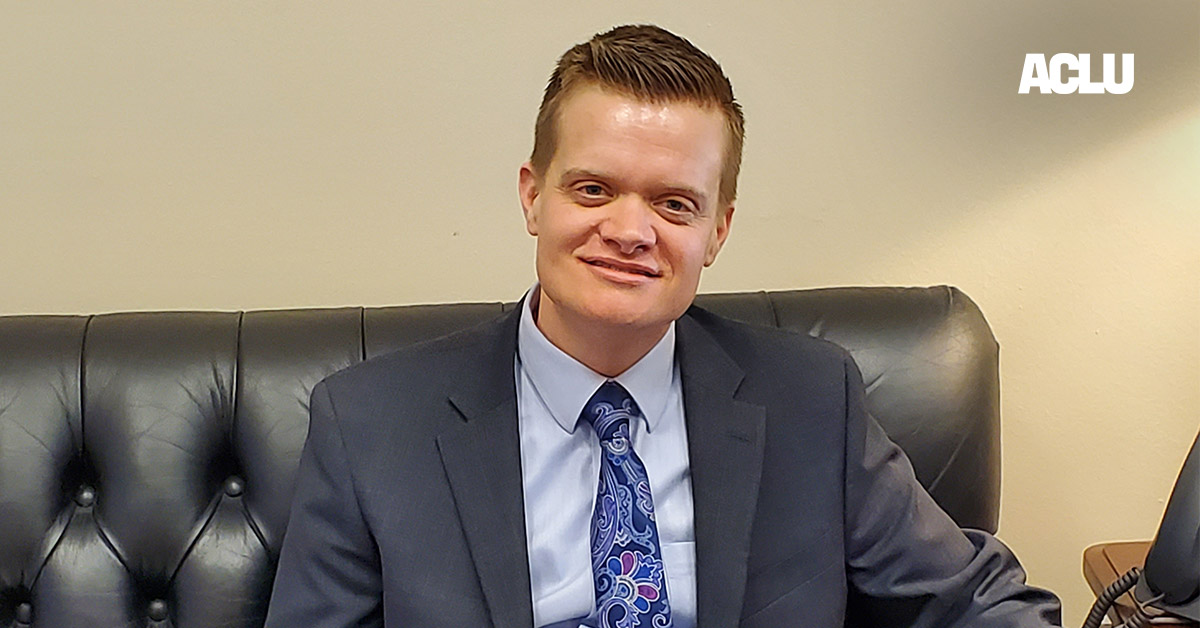This week, the Supreme Court is set to hear arguments in a case that will have wide-reaching consequences for reproductive freedom and abortion rights in America. It’s the first time the Court has weighed those rights since gaining a new conservative majority with the appointments of Justices Neil Gorsuch and Brett Kavanaugh. And the stakes are high.
The case that the court will hear, June Medical Services LLC v. Russo, is being argued by the Center for Reproductive Rights (CCR), and it involves a law in Louisiana known as a “TRAP” – Targeted Restriction on Abortion Providers. The details of TRAP laws can be wonky and complicated, but what they’re meant to do isn’t. TRAP laws are intended to circumvent Roe v. Wade, provide a back door for lawmakers to curtail abortion access, and push reproductive health services out of reach.
Essentially, these laws create burdensome and medically unnecessary regulations for abortion clinics that are written with the goal of forcing them to shut down.
If the Court rules against the plaintiff in the case — an abortion clinic in Louisiana — it’s likely to be a green light for a wave of these laws to be passed in politically conservative states. Many of those states are already in court battles over TRAP laws they already have on the books, and if they get the Supreme Court’s stamp of approval, legislators there are likely to expand the strategic use of those laws, making it increasingly difficult — if not impossible — to access an abortion there.
Anti-abortion lobbying groups know that overturning Roe v. Wade outright is unpopular. According to a 2019 poll, only 13 percent of Americans support overturning the Supreme Court’s landmark 1973 decision that established legal abortion as a constitutional right. And in 2019, the ACLU, along with its partners, successfully blocked high-profile abortion bans in Alabama, Georgia, Ohio, Kentucky, Missouri, Utah, and Arkansas.
TRAP laws take a sneakier path to limiting abortion access. By imposing regulations that sound technical and bureaucratic to a casual observer, they avoid the kind of widespread public scrutiny that the flurry of bans passed in 2019 provoked. Typically cloaked in the language of health care, the regulations they impose on abortion providers are costly and, in many cases, impossible to comply with. They don’t make anyone safer, either, which is why the American Medical Association and other major health organizations oppose them.
What they are meant to do is make it hard for abortion providers to offer medical services, and particularly in the South and Midwest, that’s exactly what they’ve done.
According to the Guttmacher Institute, between 2011 and 2017, TRAP laws caused 50 clinics in the South and 33 in the Midwest to close. In four states — Arizona, Kentucky, Ohio, and Texas — they led to half the available clinics shutting their doors. Kentucky and Missouri now have only one abortion clinic left, and if the Supreme Court lets Louisiana’s TRAP law stand, two of its remaining three will close.
Fewer clinics mean that people who need abortion care are forced to travel longer distances and rack up higher costs associated with transportation, time off work, and child care. Some will be unable to access care as a result. It also makes them likelier to get an abortion later in their pregnancy. Abortion is safe — more so than childbirth — but the risks as well as the costs associated with it increase with unnecessary delays.
TRAP laws took a hit in 2016 when the Supreme Court ruled that a Texas law, identical to the one being challenged in the Louisiana case, was unconstitutional. In a 5-3 majority, the court reaffirmed in Whole Woman’s Health v. Hellerstadt that states couldn’t impose an “undue burden” on people seeking an abortion.
But now, four years later, the court looks different than it did in 2016. With an ascendant conservative bench, the ability of states to impose TRAP laws suddenly seems much less resolved than it did in the wake of Whole Woman’s Health. June Medical Services is the first test of how this new court will treat abortion restrictions. If it breaks with its own recent precedent and gives Louisiana’s law a constitutional seal of approval, conservative lawmakers could be free to use similar laws to make it as hard as possible to get an abortion.
In advance of the hearing, here is a primer on the four most common types of TRAP laws, and what they mean for clinics in states where they’re passed.
Admitting Privileges
The Louisiana TRAP law at stake in June Medical Services is virtually identical to the one the Supreme Court struck down in 2016. It requires doctors at abortion clinics in the state to have “admitting privileges” with a local hospital.
Admitting privileges allow a doctor to check someone into a hospital and then oversee their care. In order for a doctor to get them, the hospital’s administrators need to sign off. At first glance, this sounds simple enough. Why wouldn’t a hospital grant admitting privileges to a qualified doctor, no matter what their practice?
In fact, the process of granting admitting privileges to doctors that work in abortion clinics can be heavily politicized. The hospital might be affiliated with the Catholic Church, or key decisionmakers in its administration could be personally opposed to abortion rights. Even those who are personally sympathetic to reproductive freedom might face intense political pressure from inside or outside the hospital to deny admitting privileges to doctors that perform abortions.
And in many cases, hospital rules require doctors who are granted admitting privileges to live within a certain distance of the hospital, even though many who work at abortion clinics choose to live far away because of stigma and the threat of violence against them. Hospitals also frequently have rules stipulating that doctors must admit a certain number of patients every year in order to qualify for admitting privileges.
For those who work at abortion clinics, the latter requirement can be disqualifying. Abortion is about as safe as it gets – fewer than 0.5 percent of abortion patients require hospitalization for a major complication. Thus, clinic doctors who are denied admitting privileges because they can’t meet the threshold of patients brought to the hospital every year are effectively being penalized for doing their jobs well.
Most importantly, there’s really no coherent argument in favor of requiring doctors who work at clinics to get admitting privileges in the first place. In the very rare instance in which a patient has a complication following an abortion that requires emergency attention, hospitals with emergency rooms are legally required to treat them.
And when complications necessitating hospitalization do happen, symptoms are often not apparent until later, after the patient has returned home. In those cases, they will most likely seek treatment at a hospital close to where they live — not the specific hospital where the doctor from their abortion clinic has admitting privileges anyway.
But patient care isn’t the purpose of the Louisiana law, nor of similar laws in other states. Those laws are meant to close clinics down by forcing doctors to comply with regulations they can’t meet.
Written Transfer Agreements
A close relative of admitting privilege requirements are TRAP laws that force clinics to have a “written transfer agreement” with a local hospital. The difference is, admitting privileges are granted on a case-by-case basis to individual doctors, whereas written transfer agreements are signed between the hospital and the clinic itself.
Essentially, a written transfer agreement is a contract. By signing one, a hospital agrees to treat anyone who needs emergency care resulting from an abortion performed at a specific clinic. Six states have laws on the books that require clinics to have such agreements with a nearby hospital. A seventh — Kentucky — had one until late 2018, when it was struck down in a lawsuit brought by the ACLU on behalf of the last clinic left in the state. (An appeal in the case is pending.)
Just like admitting privilege requirements, written transfer agreements address a problem that doesn’t exist. Federal law already requires hospitals to admit anyone who needs emergency services. So, in the exceedingly rare situation where someone needs to be transferred from a clinic for emergency medical care related to an abortion, they’ll get that care whether or not the clinic where they were treated had a written transfer agreement with a local hospital or not.
Also, like admitting privileges for doctors, the process of getting a written transfer agreement for a clinic can be politically charged and difficult.
And even when they do get a written transfer agreement, politicians can step in and use their muscle to create new obstacles. Before Kentucky’s law was blocked, its last remaining clinic had an agreement with the OB/GYN department of a nearby hospital. But former Gov. Matt Bevin decided that wasn’t good enough, and ordered the clinic to get a signature on the transfer agreement from the CEO of the hospital.
This, of course, was because he knew that he could pressure that CEO not to sign such an agreement. If a federal judge hadn’t intervened, Kentucky would be without any abortion clinics in the state.
In Ohio, the state Department of Health is using its written transfer agreement requirement to try to shut down every clinic it can. The only clinic in the Toledo area, for example, has repeatedly struggled to obtain a written transfer agreement, bringing it to the edge of closing more than once. State law bars public hospitals from signing transfer agreements with abortion providers, and anti-abortion groups have successfully pressured other hospitals into retracting theirs.
Some states with laws requiring written transfer agreements may allow a waiver if clinics can show, for example, that they have made back up arrangements with doctors who have admitting privileges. But even then, lawmakers and state agencies can move the goalposts to force clinics out of compliance. When one Ohio clinic asked for a waiver from the state Department of Health and provided the names of two doctors who had admitting privileges at a local hospital, it was told that, in fact, it needed three. When the clinic provided a third, the department’s response was: now we require four.
Physical Plant Requirements
The most common TRAP laws require abortion clinics to meet the same requirements of an Ambulatory Surgical Center (ASC). ASCs are health care facilities where surgical procedures that typically don’t require an overnight stay are performed.
Because these facilities perform invasive surgical procedures, states require that they be set up and equipped for emergencies and meet a high standard of sterility. The rules that cover ASCs are strict, often specifying how wide their hallways are, the number of bathrooms they must include, and what size the rooms where patients are treated must be.
Like other types of TRAP laws, physical plant requirements are designed to sound like common sense to a casual observer. Why wouldn’t an abortion clinic have to meet the same standards that facilities performing surgical procedures do?
The answer is: Abortion is a far safer procedure than those performed at most ASCs, in part because abortion does not involve any incision. Moreover, increasingly abortions are induced by the use of medication alone. And as pointed out above, fewer than 0.5 percent of people who have an abortion need to be hospitalized for complications.
Laws that require abortion clinics to be set up like ASCs are meant to force them to pay for costly renovations that can rack up millions of dollars in construction bills. Many clinics just can’t afford the price tag of compliance, and simply close down instead.
Other physical plant requirements have bordered on the absurd, like one passed in Virginia in 2011 that specified how many parking spots, sinks, and toilets clinics needed to have. (That law was later repealed by Virginia’s state board of health.)
According to the Guttmacher Institute, 17 states require abortion clinics to have structural standards that are similar to ASCs.
Personnel and Staffing Requirements
Some states have requirements that clinics providing abortion care hire staff with specific, unnecessary qualifications, including laws that prevent doctors from performing an abortion unless they are board-certified OB/GYNs. By needlessly narrowing which doctors can perform an abortion, those laws serve only to make it harder and harder for people to get an abortion.
In March 2019, Arkansas legislators passed such a measure. If it had gone into effect, there would have been only one clinic left in the entire state where a person could get an abortion. The ACLU and Planned Parenthood sued and successfully blocked the law from going into effect, but the state has appealed.
These four types of TRAP laws aren’t the only way that lawmakers are trying to restrict access to abortion, but they’re a crucial part of their strategy to roll back the guarantee of Roe v. Wade. Depending on how the Supreme Court rules in June Medical Services, they could find themselves empowered to expand that strategy – if so, some states might have no abortion clinics left before we know it.
The consequences of a turn in that direction would be profound for people seeking to access abortion services. Fewer clinics mean that they will have to travel further distances, take more time off of work, find more childcare and face other enhanced obstacles, if they are able to get the care at all. The burdens will be especially severe for people who are struggling to make ends meet, and people of color.
TRAP laws aren’t intended to keep them safe — they’re meant to push reproductive health services out of their reach.
Ashoka Mukpo, Staff Reporter, ACLU
Date
Tuesday, March 3, 2020 - 4:30pmFeatured image
